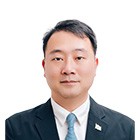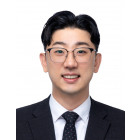Video
Publications
Issue Briefs
Publications | Issue Briefs
The Reconfiguration of the ROK-U.S. Alliance and Korean-Adapted Nuclear Sharing
Yang Uk, Lee Kyung Suk
3,6852025.08.22
The ROK-U.S. alliance confronts fundamental transformation pressures arising from systemic power transitions and evolving threat landscapes. Strategic adaptation requires innovative institutional arrangements that reconcile traditional security-provision functions with emerging regional security responsibilities. Successful “alliance modernization” demands a strategic synthesis combining expanded geographical and functional scope with enhanced deterrence credibility. South Korean strategic flexibility regarding USFK operational parameters, coupled with U.S. commitments to strengthened extended deterrence provisions, could generate positive-sum outcomes transcending traditional alliance dilemmas.
The trajectory of alliance evolution will significantly influence broader Indo-Pacific strategic stability and regional order construction. Strategic choices regarding ROK-U.S. alliance modernization will establish precedents for alliance adaptation in an era of renewed great-power competition, with implications extending far beyond bilateral security arrangements to encompass regional multilateral security architectures and global strategic stability considerations.
This article is an English Summary of Asan Issue Brief (2025-20).
(‘한미동맹의 전환 요구와 한국형 핵공유의 필요성’)

Yang Uk
Research Fellow, Director
As an expert in military strategy and weapons systems, Dr. Yang Uk has been active in the defense industry and private military enterprises for over 20 years, and founded and operated IntelEdge Inc., one of the first private military companies in Korea. Since leaving the company, he has commented on various military issues and international conflicts through broadcasting and news media, and has written various writings on weapon systems and military history. He obtained a doctorate in military strategy from Korea National Defense University (KNDU), and has analyzed North Korea's military strategy and WMD programs as a senior research fellow and the director of the WMD Center at the Korea Defense Security Forum (KODEF). He has been an active member of the policy advisory committee of Army, Air Force, Navy, Marine Corps, Joint Chief of Staff, Ministry of National Defense, and Office of National Security. Currently, he continues his research and advisory activities to each military service and government agency, teaching military revolution and modern conflicts at Korea Military Academy and Graduate School of National Defense Strategy of Hannam University.
view more



